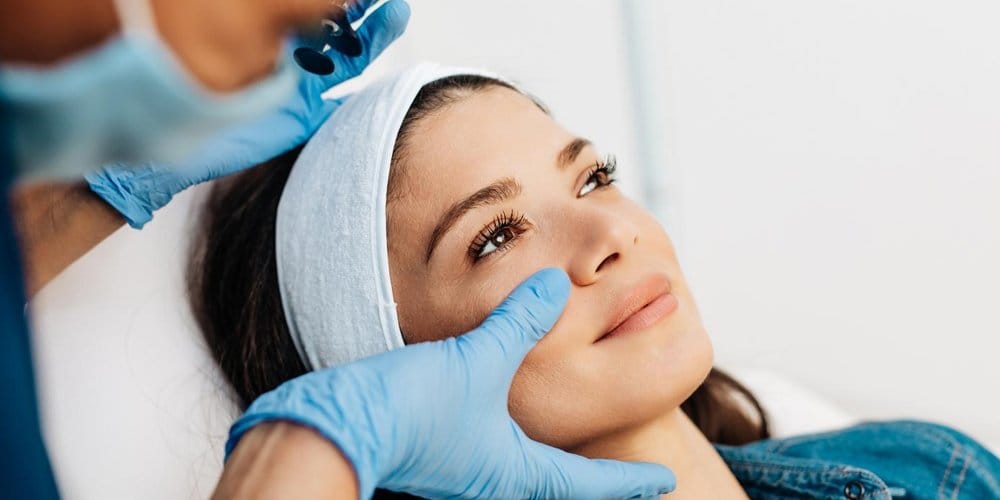Undergoing surgery is a significant event in one’s life, often marking the beginning of a journey to improved health or enhanced physical appearance. However, the success of a surgical procedure doesn’t end in the operating room. Proper post-surgery care is critical for ensuring a smooth recovery, minimizing complications, and achieving the desired outcomes.
At LerraClinic, we prioritize patient care at every stage of the surgical journey. To guide you through Post-Surgery Care, we’ve compiled this comprehensive blog to help you achieve a speedy and stress-free recovery.
Why Is Post-Surgery Care So Important?
Post-surgery care directly impacts:
- Healing Time: Proper care can accelerate the healing process and reduce downtime.
- Complication Prevention: Following post-operative instructions helps avoid infections, blood clots, or other complications.
- Optimal Results: Careful adherence to recovery protocols ensures the best possible surgical outcomes.
General Guidelines for Post-Surgery Care

While specific recommendations vary depending on the type of surgery, these general guidelines apply universally:
- Follow Your Surgeon’s Instructions
Your surgeon’s advice is tailored to your specific procedure and medical history. This includes guidelines on activity levels, medications, wound care, and dietary restrictions. Adhering to these instructions is non-negotiable for a smooth recovery. - Take Medications as Prescribed
Pain management and infection prevention are crucial in the initial recovery phase. Always take antibiotics and pain relievers as prescribed to reduce discomfort and lower the risk of complications. - Maintain Hydration and Nutrition
Staying hydrated and consuming nutrient-rich foods aids tissue repair and boosts your immune system. Incorporate foods rich in:
- Protein: For cell repair and healing.
- Vitamins C and E: To boost immune function and reduce inflammation.
- Zinc: For tissue regeneration.
- Get Plenty of Rest
Rest is the foundation of recovery. Avoid strenuous activities and allow your body time to repair itself. Prioritize quality sleep as it helps in cell regeneration and reduces stress on the body. - Gradually Resume Physical Activity
While rest is essential, light movements such as short walks can improve circulation, reduce the risk of blood clots, and promote faster healing. Always consult your doctor before starting any physical activity. - Monitor for Signs of Infection or Complications
Look out for warning signs such as:
- Excessive redness or swelling around the surgical site.
- Fever or chills.
- Severe or worsening pain.
If any of these occur, contact your healthcare provider immediately.
Specific Post-Surgery Care Tips by Procedure

Each surgical procedure comes with unique post-operative requirements. Below are detailed care instructions for some common surgeries offered at LerraClinic:
1. Dental Implants
Dental implant surgery requires meticulous aftercare to ensure the implants integrate properly with the jawbone.
- Oral Hygiene: Rinse your mouth with an antibacterial mouthwash and avoid brushing the surgical site for the first few days.
- Dietary Restrictions: Stick to soft foods and avoid hot or spicy foods that could irritate the gums.
- Swelling Management: Use ice packs on your cheek for the first 48 hours to reduce swelling.
2. Rhinoplasty
Rhinoplasty, or nose surgery, demands extra caution to protect the delicate nasal structures.
- Keep Your Head Elevated: Sleep with your head propped up to minimize swelling.
- Avoid Blowing Your Nose: This can disrupt the healing process. Use saline sprays to keep your nasal passages clear.
- Protect Your Nose: Avoid wearing glasses directly on your nose for at least four weeks.
3. Body Contouring (Liposuction or Tummy Tuck)
These procedures involve larger areas of the body and require compression garments for optimal results.
- Wear Compression Garments: These garments reduce swelling, improve contouring, and support healing tissues.
- Stay Active (Gently): Light walking prevents blood clots and promotes circulation. Avoid vigorous activities for at least six weeks.
- Hydrate: Drink plenty of water to flush out anesthesia and medications from your system.
4. Breast Augmentation or Lift
These surgeries require careful handling of the upper body.
- Wear Supportive Bras: Use surgical or supportive bras as instructed to reduce swelling and support healing tissues.
- Limit Arm Movement: Avoid lifting heavy objects or raising your arms above shoulder level.
- Avoid Sleeping on Your Stomach: Sleep on your back to protect the surgical area.
Tips for Mental and Emotional Recovery

The emotional side of recovery is often overlooked but is equally important for overall well-being.
- Set Realistic Expectations
Understand that the final results of surgery may take weeks or months to become apparent. Be patient with your body. - Stay Connected with Support Systems
Surround yourself with family and friends who can offer emotional and physical assistance during your recovery. - Practice Relaxation Techniques
Stress can slow the healing process. Incorporate relaxation techniques like deep breathing, meditation, or gentle yoga to stay calm.
FAQs About Post-Surgery Care
Q: How long does recovery take?
A: Recovery time varies based on the type of surgery, your overall health, and how well you follow aftercare instructions. Discuss timelines with your surgeon.
Q: Can I take showers immediately after surgery?
A: This depends on the procedure. In most cases, you’ll need to avoid wetting the surgical site for at least 48 hours or until your doctor gives the green light.
Q: When can I return to work?
A: Your surgeon will provide specific recommendations based on the physical demands of your job and the nature of your surgery.
Common Mistakes to Avoid During Recovery
- Ignoring Pain or Symptoms: Never downplay discomfort or unusual symptoms. Report them to your doctor promptly.
- Overexerting Yourself: Rushing back to regular activities can hinder healing. Follow your surgeon’s timeline for activity resumption.
- Skipping Follow-Up Appointments: These visits are crucial for monitoring your progress and addressing any issues.
LerraClinic: Your Partner in Recovery
At LerraClinic, our commitment to your well-being extends beyond the operating room. We provide personalized post-operative care plans to ensure you achieve optimal results and recover quickly. Our team of experts is available to answer your questions, monitor your progress, and provide support every step of the way.
Conclusion
Recovering from surgery is a journey that requires patience, dedication, and the right guidance. By following the essential tips outlined in this blog and partnering with a trusted clinic like LerraClinic, you can set yourself up for a successful recovery and achieve the desired outcomes of your procedure.
Remember, your health and well-being are worth the effort. Take it one day at a time, and soon you’ll be back to feeling your best.
For more information about our procedures and post-surgery care services, visit LerraClinic, the best clinic in Turkey, today!
Contact us today and get the best offer!
Read Also:

